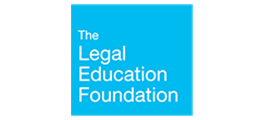
In July we announced that the government agreed to reinstate legal aid for separated and unaccompanied children in immigration cases.
This important concession was the result of The Children’s Society’s 5-year campaign and legal challenge, brought with the help of Islington Law Centre and MiCLU.
See below for a case note giving the background to the challenge as well as guidance on the interim period and practical information for legal aid providers, prepared by Roopa Tanna of Islington Law Centre, part of the legal team in The Queen on the application of the Children’s Society v The Lord Chancellor.
Please take a moment to help us shape the way that immigration legal aid cases for separated and unaccompanied children are funded once reinstated within the scope of legal aid.
We understand that legal aid lawyers may have changed their case profile and practices to take account of the effects of LASPO. Reinstatement of legal aid for vulnerable children will only be effective if legal aid lawyers are willing and able to take cases on for these children.
We would therefore like to better understand the factors that may affect legal aid lawyers’ decisions as to whether to take on immigration cases for unaccompanied and separated children once these fall back in scope, in the hope that we can negotiate the best possible scenario for children and legal aid practitioners.
Please find a link to our survey below. It should take approximately 3 minutes to complete:
Applications for ECF must be made with the CIV ECF1 FORM and should be submitted electronically to contactecc@legalaid.gsi.gov.uk.
As set out above, when making an application for an unaccompanied or separated child to be granted ECF in relation to an immigration (non-asylum matter), any application need not contain detailed representations or evidence.
During this interim period, immigration cases will fall under the Graduated Fixed Fee scheme and will be paid a fixed fee of £234, and have an upper disbursement limit of £400 which can be extended on application of a CW3C form (those with delegated powers may wish to confirm with the LAA that these extend to self-granting extensions in immigration cases).
The experience of practitioners who regularly undertake applications of this nature is that there is a strong likelihood that a properly prepared and evidenced immigration application for a separated or unaccompanied child will escape the fixed fee scheme and then be paid at higher hourly rates.
If providers have queries about availability of additional New Matter Starts (NMS) to undertake immigration work for unaccompanied and separated children they should initially approach their contract manager.
As entitlement to legal aid is governed by primary legislation in the form of LASPO, a Statutory Instrument is required to be laid before parliament via the affirmative resolution procedure before LASPO can be amended to reinstate legal aid for this group.
TCS and their legal team, together with other stake holders, are therefore consulting with the Ministry of Justice in relation to the content of the Statutory Instrument and any guidance to be issued to Legal Aid Agency caseworkers. The intention is that the Statutory Instrument will be laid before parliament by 31st December 2018.
Until the Statutory Instrument is approved by parliament, legal aid will not be formally restored for unaccompanied and separated children in relation to immigration matters. In the meantime therefore, the Lord Chancellor has issued guidance to Legal Aid Agency caseworkers in the form of a letter dated 26 July 2018 letter dated 26 July 2018 which indicates that:
a. Caseworkers ought to operate on the basis that there is a strong presumption that under Article 8 of the European Convention on Human Rights unaccompanied or separated children (children under the age of 18 who have been separated from both parents) require legal aid in relation to non-asylum matters.
b. In light of this presumption, applications by or on behalf of unaccompanied and separated children in relation to non-asylum immigration matters need not be supported by detailed evidence in relation to issues relating to vulnerability and ability to participate in proceedings without legal aid (as this will be presumed)
TCS and their legal team have raised concerns that this may not be sufficiently clear to practitioners in relation to the issues conceded by the Lord Chancellor in the context of the litigation. However, Ministry of Justice officials have confirmed that the minister’s intention is to give effect to the issues conceded, and the above should therefore be read by LAA caseworkers to preclude the need for detailed representations or evidence in relation to the complexity of immigration matters or the importance to the individual concerned as these will be presumed in accordance with subparagraph b) of the guidance.
Broadly speaking, an ECF application accompanied by evidence that the applicant is a child who is unaccompanied or who is separated from both parents, and needs advice and representation in relation to immigration matters, should be sufficient to secure a grant of ECF for that child without more.
In addition to seeking ECF for ‘stand alone’ immigration matters, practitioners representing unaccompanied asylum seeking children in relation to their asylum claims, appeals against refusal of asylum, refusal of further leave on asylum or Article 3 grounds can now secure funding for ‘mixed’ claims such as those based on Article 8 ECHR.
Practitioners should consider whether further work could be carried out in relation to evidencing that child’s private and family life in the UK, ability to comply with any aspect of the immigration rules, or the potential to register as British. This may be the case where children have spent long periods of time in the UK, or have particular needs as a result of trauma, health problems, disability or being a Looked After Child.
TCS and their legal term urge practitioners to make applications for ECF for unaccompanied and separated children as widely as possible. There are many vulnerable children in need of immigration and advice who may turn 18 before the Statutory Instrument is laid before parliament. At present there is no clarity around transitional provisions for children who have ‘aged out’ since LASPO came into force or whilst primary legislation is amended, and it is important that we, as a sector, protect their position.
In the amended grounds of claim the basis of challenge was broadly that:
- Unaccompanied and separated children are extremely vulnerable, and their vulnerabilities are exacerbated by insecure immigration status
- The potential immigration processes and proceedings they face in an attempt to regularise their status in the UK are extremely complex, such that children cannot be expected to navigate them alone
- The consequences of failing or being unable to navigate these complex procedures are fundamental and life changing
- The ECF scheme is an inadequate safeguard for this defined and narrow cohort
Further, significant evidence was obtained from lawyers, NGOs, and civil society organisations in relation to the adverse impact upon unaccompanied and separated children of being unable to access legal aid to resolve their non-asylum immigration law issues. We are very grateful to all those who supported this work.
Following the submission of amended grounds and evidence in March 2018, the Lord Chancellor conceded that that there is a strong presumption that Article 8 of the European Convention on Human Rights requires legal aid to be granted to unaccompanied or separated children in relation to non-asylum immigration matters, and as a result agreed to lay a Statutory Instrument to bring legal aid for this group back into scope in relation to non-asylum immigration matters.
The Children’s Society was represented by solicitors at Islington Law Centre and MiCLU (led by Roopa Tanna), and Counsel Paul Bowen QC and Oliver Jones (Brick Court Chambers), Michelle Knorr and Zoe Harper (Doughty Street Chambers) and Alison Pickup (then of Doughty Street Chambers, now at the Public Law Project) during the life of the case.
The Legal Aid, Sentencing and Punishment of Offenders Act 2012 [‘LASPO’] was responsible for preventing access to justice for hundreds of thousands of people requiring advice in relation to civil matters. In terms of immigration, particular concerns were raised by children’s organisations and others about the serious impact this would have on unaccompanied and separated children. The government’s position at the time was that children could receive help from social workers. The government’s position at the time was that children could receive help from social workers.
Having raised its concerns about how cuts to legal aid would impact on young people and families throughout the development of this legislation, The Children’s Society (TCS) was willing to pursue a claim as an NGO Claimant. At that point, the government’s position was that the procedural safeguard put in place, the Exceptional Cases Funding regime would only very rarely extend to immigration cases as such applications did not amount to civil rights because they did not involve the determination of civil rights and obligations for Article 6, ECHR purposes. The Lord Chancellor’s view at that time was that there was no obligation to grant legal aid in immigration cases in order to meet the procedural requirements of Article 8, ECHR.
We initially sent a pre-action protocol letter, setting out the details about the significant vulnerability of the cohort, the complexity of immigration law and the fact that children’s lives would be irrevocably damaged unless their immigration status was properly resolved, because status would have a major impact on the paths their lives took. We invited the Lord Chancellor to to exercise his power under s. 9 to amend Schedule 1 of LASPO so as to provide for civil legal aid services to be made available to separated children in proceedings connected with their rights to enter or remain in the United Kingdom and eligibility for registration as British citizens.
The Lord Chancellor refused to do so and we issued an application for permission to apply for Judicial Review in May 2013, shortly after LASPO came into force, challenging:
- the refusal by the Lord Chancellor, to exercise his powers under s. 9(2) of the LASPO so as to bring legal aid for unaccompanied or separated children who are applicants or appellants in non-asylum immigration applications or proceedings within scope, and
- the lawfulness of the Guidance on Exceptional Funding (Non-Inquests)’ issued on 25 February 2013 under s. 4(3) LASPO (the Exceptional Funding Guidance), including insofar as it excluded the grant of exceptional legal aid funding in all non-asylum immigration matters founded on Article 8 ECHR, at least insofar as unaccompanied or separated children are concerned.
The application was supported by detailed evidence on the impact of LASPO on unaccompanied and separated children requiring immigration advice from a range of sources including legal practitioners and NGOs.
However, there were numerous challenges to LASPO that were subsequently issued dealing with legal issues arising in this claim and particularly given that TCS was an NGO Claimant and therefore at risk on costs, it was agreed that the claim should be stayed in order to allow the other claims to play out. The TCS claim was therefore stayed behind R (Gudanaviciene) v Director of Legal Aid Casework and another [2015] 1 WLR 2247 (‘Gudanaviciene’), R (S) v Director of Legal Aid Casework (CA) [2016] 1 WLR 4733 (‘IS’) and R (PLP) v Lord Chancellor [2016] UKSC 39 (‘PLP’). After those matters had been litigated, and the situation in relation to the existence and scope of the ECF scheme became somewhat clearer for immigration practitioners, the application was amended in March 2018.
Whilst the lengthy delay meant that unaccompanied and separated children were prevented from having access to justice, the evidence regarding the impact of the loss of legal aid – at the same time when the immigration system was getting more complex on a daily basis – was getting stronger, and many of the fears raised in the initial evidence had come to fruition.
The concerns raised by the Joint Committee on Human Rights, reports from Amnesty International, the Law Society, Coram Children’s Legal Centre and many others as well as the two research reports specifically looking at the impact of legal aid cuts on separated migrant children – ‘Cut Off From Justice’ by Dr Helen Connolly at the University of Bedfordshire produced during the course of the stay in the proceedings – all contributed to the position of the Lord Chancellor becoming increasingly difficult to sustain.









